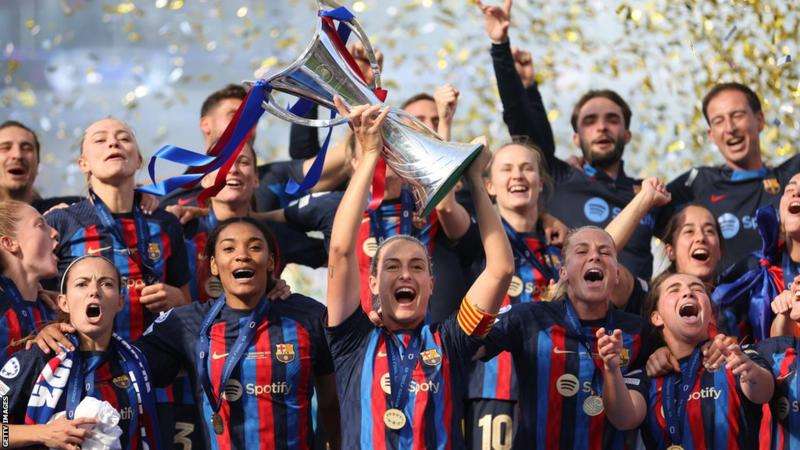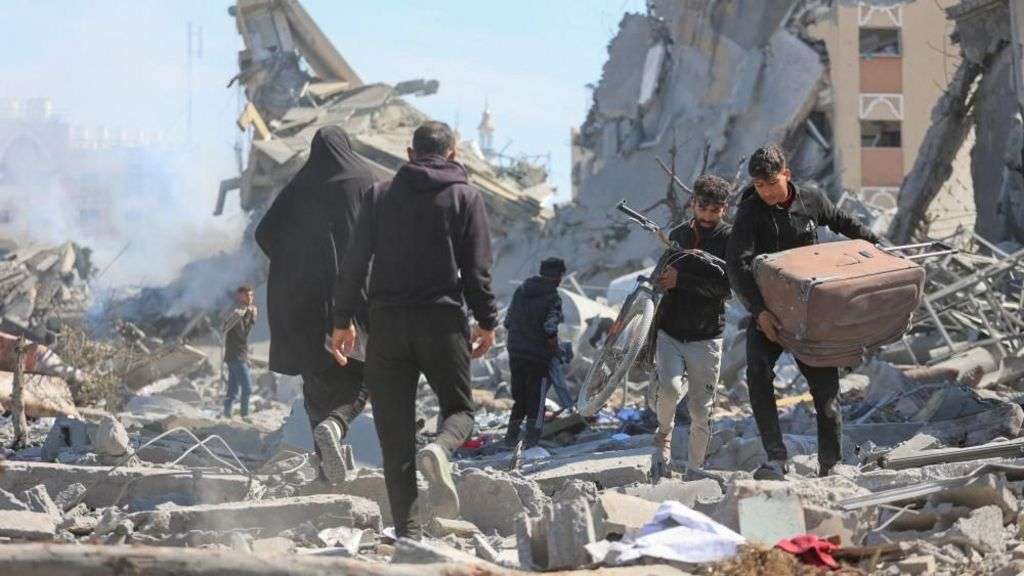If early qualifying results are anything to go by, this season's Women's Champions League may yield the most exhilarating battle yet for Europe's top club prize.
Several high-profile upsets in the qualifying rounds and a tough group-stage draw will have left plenty of clubs believing they can claim glory in Bilbao in May.
Hopes of a second European title for a British club rest solely on the shoulders of Emma Hayes and her Chelsea side after Arsenal, Manchester United, Scottish champions Glasgow City and Celtic failed to qualify.
Here's what you need to watch out for when the group stage gets under way this week.
One last dance for Hayes and Chelsea?
After news that long-serving manager Hayes will leave Chelsea at the end of the season, this European campaign could be seen as a last chance for her and the club to claim the one prize that has eluded them.
Last season's journey ended in familiar fashion. Another campaign full of hope and promise was cut short in the semi-finals by eventual Treble winners Barcelona.
However, with another significant summer of recruitment - they have signed Ashley Lawrence, Mia Fishel and Catarina Macario among others - Chelsea will have renewed belief that this will be their season.
Hayes' side have been handed a tough start - a visit to Real Madrid in their opening match followed by games against Arsenal's conquerors, Paris FC, and Swedish club BK Hacken.
The closest Chelsea have come to winning the Champions League was a chastening 4-0 defeat by Barcelona in the 2021 final in Gothenburg.
Can this be the season when they finally conquer the continent?
Who are the contenders?
Barcelona will aim to retain the title for the first time in their history, having produced an incredible comeback from two goals down to win last year's final against Wolfsburg in Eindhoven.
The Barcelona squad contains nine of the Spain side who won the World Cup in August, including Aitana Bonmati, the Uefa Player of the Year and Ballon d'Or winner, and Ona Batlle, signed from Manchester United in June. England's Lucy Bronze and Keira Walsh are also part of the star-studded squad.
It would be remiss to rule out eight-time winners Lyon. A lack of clinical finishing over both legs of their quarter-final with Chelsea proved their undoing last season as they were eliminated in a penalty shootout.
The signings of World Cup breakout star Melchie Dumornay and forward Kadidiatou Diani from rivals Paris St-Germain add further firepower.
Last year's runners-up and two-time winners Wolfsburg would usually be considered major contenders, but, after they suffered a shock defeat by Paris FC in qualifying, domestic champions Bayern Munich carry German hopes this season.
Bayern, who lost to Arsenal in last year's quarter-finals, recruited two-time Uefa Women's Player of the Year Pernille Harder and Magdalena Eriksson from Chelsea in the summer transfer window.
Drawn alongside two of last season's quarter-finalists in PSG and Roma, Bayern face one of the toughest routes to the knockout stages.
Format discussion rumbles on
With the elimination of several big teams before the group stage, the debate around the format of the Champions League will likely continue throughout the season.
Striking the right balance between growing the game with sides from developing football nations and continuing to bring visibility to the product through the world's biggest teams and players is a task that will take time to solve.
As it stands, only the champions of Spain, Germany and France qualify automatically.
Women's Super League champions Chelsea's automatic progression to the group stage was confirmed only after Spanish champions Barcelona won last season's competition, with WSL runners-up Manchester United, Wolfsburg and PSG having to compete in qualifiers.
United manager Mark Skinner was critical of the format before their elimination by PSG.
"You saw how hard we had to work last year to get into a qualifying round?" he said.
"Look how far Arsenal went last year, look how far Chelsea went, and yet we're still having to qualify? It doesn't work."








